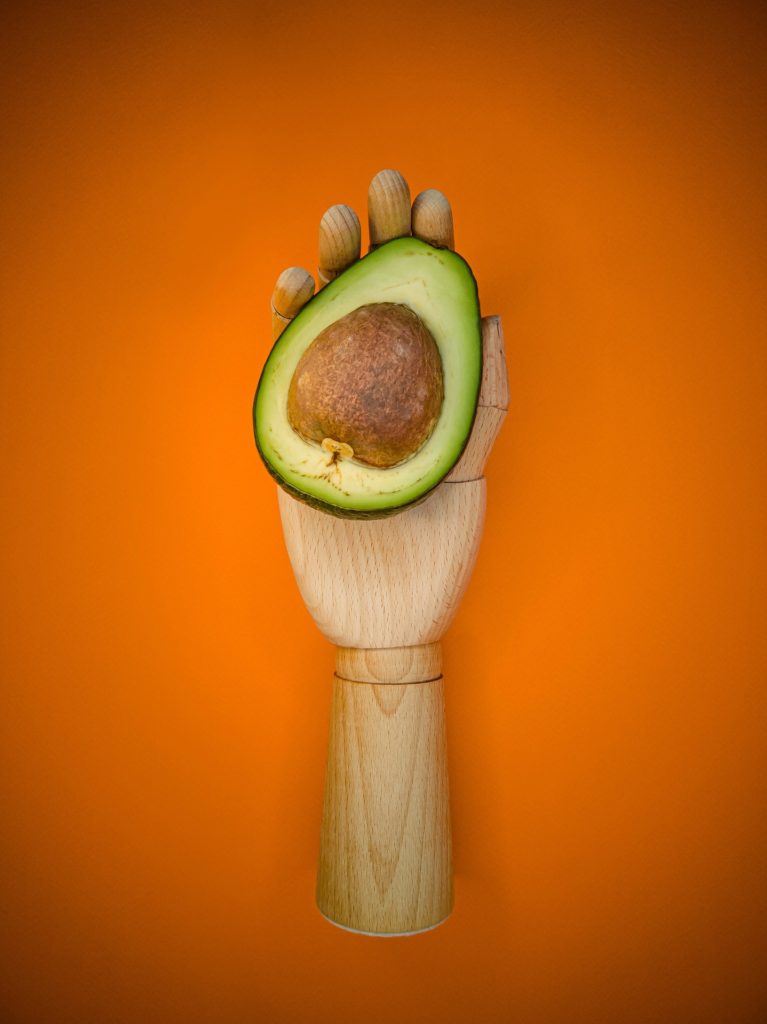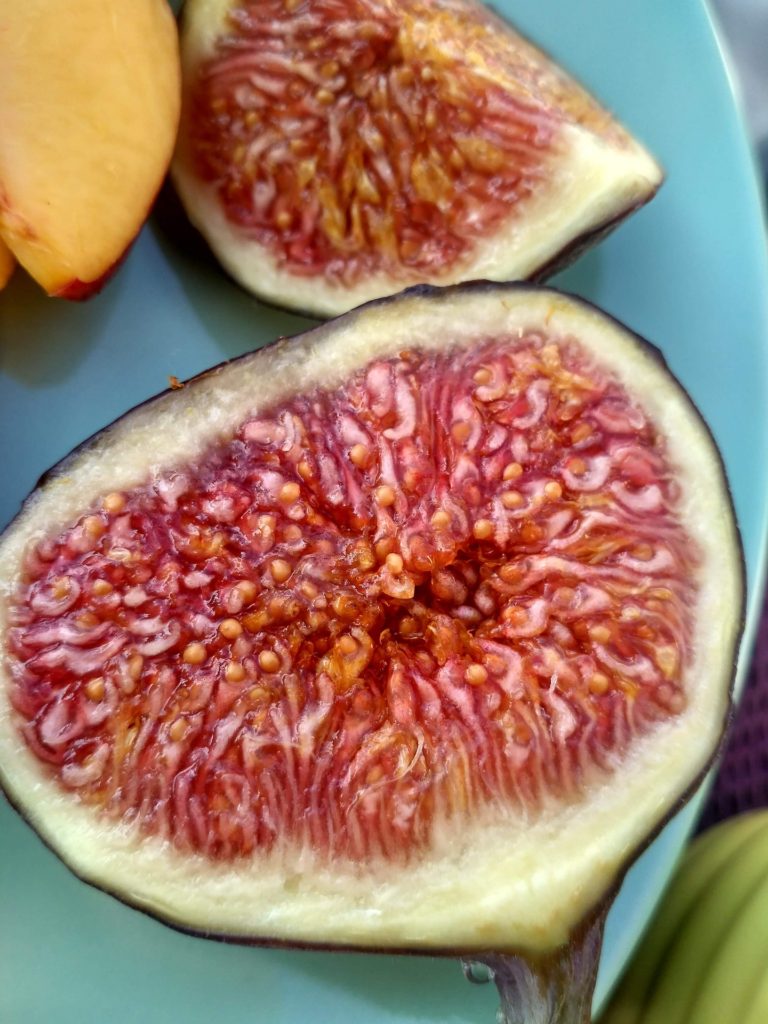
When we hear the word “diet,” it’s easy to think about restrictions, calorie counting, and all those new fad diets popping up every year. But a diet is so much more than that. It’s about what we eat every day, how we nourish our bodies, and the choices we make to live healthier, happier lives. In this guide, we’ll break down everything you need to know about diets, from understanding the basics to debunking myths and providing practical tips. Ready to dive in? Let’s get started!
Table Of Contents
- Understanding Diet
- What is a Diet?
- Importance of a Healthy Diet
- Types of Diets
- Mediterranean Diet
- Ketogenic Diet
- Vegan Diet
- Paleo Diet
- Benefits of a Balanced Diet
- Physical Health Benefits
- Mental Health Benefits
- Creating a Balanced Diet
- Macronutrients
- Micronutrients
- Diet Myths and Misconceptions
- Carbs Are the Enemy
- All Fats Are Bad
- Skipping Meals Helps with Weight Loss
- Tips for Sticking to Your Diet
- Meal Planning
- Mindful Eating
- Staying Hydrated
- Conclusion
- FAQs
- References
Understanding Diet
What is a Diet?
At its core, a diet is simply the sum of food consumed by a person. It encompasses everything from our daily meals and snacks to the beverages we drink. Diets can be tailored to meet specific health needs, personal preferences, or cultural traditions. They’re not one-size-fits-all; instead, they should be personalized to support our unique lifestyles and goals.
Importance of a Healthy Diet
A healthy diet is crucial for maintaining overall well-being. It helps us achieve and maintain a healthy weight, reduces the risk of chronic diseases like heart disease and diabetes, and supports our mental health. Essentially, the food we eat fuels our bodies and minds, making it important to choose wisely.

Types of Diets
Mediterranean Diet
The Mediterranean diet is inspired by the eating habits of people in countries bordering the Mediterranean Sea. It’s rich in fruits, vegetables, whole grains, nuts, and olive oil. This diet emphasizes the consumption of lean proteins like fish and poultry while limiting red meat and sugary treats. It’s not just a diet but a lifestyle, promoting physical activity and communal meals.
Ketogenic Diet
The ketogenic (keto) diet focuses on high-fat, low-carbohydrate intake, pushing the body into a state of ketosis. This means your body burns fat for energy instead of carbs. It includes foods like meats, fatty fish, eggs, butter, nuts, and low-carb vegetables. While it can be effective for weight loss and blood sugar control, it’s important to approach it with caution and consult a healthcare professional.
Vegan Diet
A vegan diet excludes all animal products, including meat, dairy, and eggs. It relies on plant-based foods like fruits, vegetables, grains, nuts, and seeds. This diet can offer numerous health benefits, including lower risks of heart disease and improved weight management. However, it requires careful planning to ensure adequate intake of essential nutrients like protein, iron, and vitamin B12.
Paleo Diet
The paleo diet, also known as the “caveman diet,” is based on the premise of eating like our prehistoric ancestors. It includes whole foods such as meats, fish, fruits, vegetables, nuts, and seeds while excluding processed foods, grains, and dairy. Advocates believe it leads to better health and weight loss by mimicking the dietary patterns of early humans.

Benefits of a Balanced Diet
Physical Health Benefits
Eating a balanced diet can lead to numerous physical health benefits. It can help you maintain a healthy weight, reduce the risk of chronic diseases like heart disease, diabetes, and cancer, and promote overall bodily function. Nutrient-rich foods provide the energy needed for daily activities and help keep our organs functioning properly.
Mental Health Benefits
A balanced diet isn’t just good for your body; it’s great for your mind too. Consuming a variety of nutrients supports brain health, improves mood, and can even reduce symptoms of depression and anxiety. Foods rich in omega-3 fatty acids, like fish and flaxseeds, and those high in antioxidants, like berries and leafy greens, are particularly beneficial for mental well-being.

Creating a Balanced Diet
Macronutrients
Macronutrients are the nutrients we need in larger amounts, including carbohydrates, proteins, and fats. Carbs provide energy, proteins are essential for growth and repair, and fats support cell function and nutrient absorption. A balanced diet includes the right proportions of these macronutrients to meet your individual needs.
Micronutrients
Micronutrients, such as vitamins and minerals, are required in smaller amounts but are equally crucial. They play vital roles in bodily functions, from bone health (calcium) to immune support (vitamin C) and blood formation (iron). A diverse diet rich in fruits, vegetables, lean proteins, and whole grains typically covers these needs.

Diet Myths and Misconceptions
Carbs Are the Enemy
Carbohydrates often get a bad rap, but they are an essential part of a balanced diet. Not all carbs are created equal—whole grains, fruits, and vegetables provide essential nutrients and fiber, whereas refined carbs like sugary snacks should be limited. It’s about choosing the right types of carbs, not eliminating them entirely.
All Fats Are Bad
Just like carbs, fats have been misunderstood. Healthy fats, such as those found in avocados, nuts, and olive oil, are essential for brain health, hormone production, and nutrient absorption. It’s the trans fats and excessive saturated fats, often found in processed foods, that should be minimized.
Skipping Meals Helps with Weight Loss
Skipping meals can actually be counterproductive for weight loss. It often leads to overeating later and can slow down your metabolism. Regular, balanced meals keep your energy levels stable and help control hunger, making it easier to maintain a healthy weight.

Tips for Sticking to Your Diet
Meal Planning
Planning your meals ahead of time can make healthy eating easier. It helps you avoid last-minute unhealthy choices and ensures you have nutritious options readily available. Try preparing meals in batches and storing them for busy days.
Mindful Eating
Mindful eating involves paying full attention to the experience of eating and drinking. It’s about savoring each bite, eating slowly, and recognizing your hunger and fullness cues. This practice can improve your relationship with food and prevent overeating.
Staying Hydrated
Water is essential for overall health, aiding in digestion, nutrient absorption, and temperature regulation. Make sure to drink enough water throughout the day. Sometimes, our bodies can confuse thirst with hunger, leading to unnecessary snacking.

Conclusion
Embracing a healthy diet is a journey, not a destination. It’s about making sustainable changes that fit your lifestyle and support your overall well-being. Remember, there’s no perfect diet—what’s important is finding what works for you and sticking with it. So, start small, make gradual changes, and celebrate your progress along the way. Here’s to a healthier, happier you!

FAQs
What is the best diet for weight loss?
The best diet for weight loss is one that you can stick to long-term, meets your nutritional needs, and fits your lifestyle. Popular options include the Mediterranean diet, low-carb diets, and plant-based diets. Consult a healthcare professional to find the best approach for you.
How can I make healthy eating more affordable?
Buying in bulk, choosing seasonal produce, and cooking at home can save money. Plan your meals, make a shopping list, and stick to it. Avoid convenience foods and opt for whole, unprocessed items.
Are cheat days okay on a diet?
Occasional cheat days can be part of a balanced approach to eating, as long as they don’t lead to overindulgence. Moderation is key. Allow yourself some flexibility to enjoy treats without feeling guilty.
How important is exercise in a diet plan?
Exercise is an important component of a healthy lifestyle and complements a balanced diet. It helps with weight management, improves cardiovascular health, and boosts mood. Aim for a mix of cardio, strength training, and flexibility exercises.
How can I deal with cravings?
Cravings can be managed by eating balanced meals, staying hydrated, and getting enough sleep. Sometimes, cravings indicate a nutrient deficiency, so ensure your diet is well-rounded. Mindful eating and finding healthier alternatives can also help.




References
- (2021, May 16). Benefits of Healthy Eating. https://www.cdc.gov/nutrition/resources-publications/benefits-of-healthy-eating.html
- . (2022, February 1). Micronutrient Facts. https://www.cdc.gov/nutrition/micronutrient-malnutrition/micronutrients/index.html
- . (2023, February 22). Vitamin and Mineral Supplement Fact Sheets. https://ods.od.nih.gov/factsheets/list-VitaminsMinerals/
- . (2023, February 23). Office of Dietary Supplements – Multivitamin/mineral Supplements. https://ods.od.nih.gov/factsheets/MVMS-HealthProfessional/
- . (2023, February 6). Vitamins and Minerals. https://www.nccih.nih.gov/health/vitamins-and-minerals
- Abobatta, W F. (2021, November 24). Nutritional and Healthy Benefits of Fruits. https://doi.org/10.26717/bjstr.2021.40.006412
- Anton, S D., Moehl, K., Donahoo, W T., Marosi, K., Lee, S A., Mainous, A G., Leeuwenburgh, C., & Mattson, M P. (2017, October 31). Flipping the Metabolic Switch: Understanding and Applying the Health Benefits of Fasting. https://doi.org/10.1002/oby.22065
- Biochemistry, Nutrients. (2022, May 8). https://www.ncbi.nlm.nih.gov/books/NBK554545/
- Cena, H., & Calder, P C. (2020, January 27). Defining a Healthy Diet: Evidence for the Role of Contemporary Dietary Patterns in Health and Disease. https://doi.org/10.3390/nu12020334
- Ford, N B., & Liu, A. (2020, May 29). The Forgotten Fruit: A Case for Consuming Avocado Within the Traditional Mediterranean Diet. https://doi.org/10.3389/fnut.2020.00078
- Frassinetti, S., Moccia, E., Caltavuturo, L., Gabriele, M., Longo, V., Bellani, L., Giorgi, G., & Giorgetti, L. (2018, October 1). Nutraceutical potential of hemp (Cannabis sativa L.) seeds and sprouts. https://doi.org/10.1016/j.foodchem.2018.04.078
- Hamdy, O., Tasabehji, M W., Elseaidy, T., Tomah, S., Ashrafzadeh, S., & Mottalib, A. (2018, October 17). Fat Versus Carbohydrate-Based Energy-Restricted Diets for Weight Loss in Patients With Type 2 Diabetes. https://doi.org/10.1007/s11892-018-1103-4
- Hayhoe, R., Rechel, B., Clark, A., Gummerson, C., Smith, S J L., & Welch, A. (2021, September 27). Cross-sectional associations of schoolchildren’s fruit and vegetable consumption, and meal choices, with their mental well-being: a cross-sectional study. https://doi.org/10.1136/bmjnph-2020-000205
- Healthy Lifestyle. (2023, January 1). https://sites.google.com/view/healthy-lifestyle-3/home
- Kandel, S. (2019, May 22). An Evidence-based Look at the Effects of Diet on Health. https://doi.org/10.7759/cureus.4715
- Kim, D., Ji, I., Ng’ombe, J N., Han, K., & Vitale, J D. (2021, February 1). Do Dietary Supplements Improve Perceived Health Well-Being? Evidence from Korea. https://doi.org/10.3390/ijerph18031306
- LeBlanc, K., Baer-Sinnott, S., Lancaster, K J., Campos, H., Lau, K H K., Tucker, K L., Kushi, L H., & Willett, W C. (2024, April 1). Perspective: Beyond the Mediterranean Diet — Exploring Latin American, Asian, and African Heritage Diets as Cultural Models of Healthy Eating. https://doi.org/10.1016/j.advnut.2024.100221
- Lugo-Morín, D R. (2022, February 23). Looking into the past to build the future: food, memory, and identity in the indigenous societies of Puebla, Mexico. https://doi.org/10.1186/s42779-022-00123-w
- Macronutrients in Health and Disease. (2020, November 6). https://nutritionguide.pcrm.org/nutritionguide/view/Nutrition_Guide_for_Clinicians/1342092/all/Macronutrients_in_Health_and_Disease
- Martínez‐González, M Á., Kim, H., Prakash, V., Ramos-López, O., Zotor, F., & Martínéz, J A. (2021, June 1). Personalised, population and planetary nutrition for precision health. https://doi.org/10.1136/bmjnph-2021-000235
- Muscaritoli, M. (2021, March 8). The Impact of Nutrients on Mental Health and Well-Being: Insights From the Literature. https://doi.org/10.3389/fnut.2021.656290
- Nutrition for Dancers Reduces Injury Risk – Dance Nutrition. (2023, January 1). https://dancenutrition.com/dance-nutrition-facts/
- Obermayer, A., Tripolt, N J., Pferschy, P N., Kojzar, H., Aziz, F., Müller, A., Schauer, M., Oulhaj, A., Aberer, F., Sourij, C., Habisch, H., Madl, T., Pieber, T R., Obermayer-Pietsch, B., Stadlbauer, V., & Sourij, H. (2022, December 12). Efficacy and Safety of Intermittent Fasting in People With Insulin-Treated Type 2 Diabetes (INTERFAST-2)—A Randomized Controlled Trial. https://doi.org/10.2337/dc22-1622
- Ojo, T K., Joshua, O O., Ogedegbe, O J., Oluwole, O., Ademidun, A., & Jesuyajolu, D. (2022, September 5). Role of Intermittent Fasting in the Management of Prediabetes and Type 2 Diabetes Mellitus. https://doi.org/10.7759/cureus.28800
- Paleolithic Diet. (2022, July 4). https://www.ncbi.nlm.nih.gov/books/NBK482457/
- Puri, S., Shaheen, M., & Grover, B. (2023, March 27). Nutrition and cognitive health: A life course approach. https://doi.org/10.3389/fpubh.2023.1023907
- Rocillo-Aquino, Z., Escoto, F C., Leos-Rodríguez, J A., Cruz-Delgado, D., & Espinoza‐Ortega, A. (2021, November 29). What is a traditional food? Conceptual evolution from four dimensions. https://doi.org/10.1186/s42779-021-00113-4
- Role of Nutrition In Sports. (2022, September 14). https://www.slideshare.net/JustForHearts/role-of-nutrition-in-sports
- Romagnolo, D F., & Selmin, O I. (2017, September 1). Mediterranean Diet and Prevention of Chronic Diseases. https://doi.org/10.1097/nt.0000000000000228
- Salas‐Salvadó, J., & Papandreou, C. (2020, January 1). The Mediterranean diet: History, concepts and elements. https://doi.org/10.1016/b978-0-12-818649-7.00001-1
- Satija, A., & Hu, F B. (2018, October 1). Plant-based diets and cardiovascular health. https://doi.org/10.1016/j.tcm.2018.02.004
- Schwingshackl, L., Morze, J., & Hoffmann, G. (2019, July 25). Mediterranean diet and health status: Active ingredients and pharmacological mechanisms. https://doi.org/10.1111/bph.14778
- Sikalidis, A K., Kelleher, A H., & Kristo, A S. (2021, April 25). Mediterranean Diet. https://doi.org/10.3390/encyclopedia1020031
- Sultaniyazovich, Y M., & Alisherovna, S G. (2020, January 1). Nutrition Modeling During the Prenatal Development of the Fetus. https://doi.org/10.31782/ijcrr.2020.121917
- Sun, Y., Ye, Y., He, Y., & Liu, S. (2023, June 1). Time-restricted feeding: what we have done and what more we can do?. https://doi.org/10.21037/hbsn-23-246
- The adverse effects of ketogenic diet.. (2020, September 23). https://thefoodstudy.blogspot.com/2020/09/what-are-adverse-effects-of-ketogenic.html
- Username. (2022, July 4). Paleolithic Diet – PubMed. https://pubmed.ncbi.nlm.nih.gov/29494064/
- Venn, B. (2020, August 7). Macronutrients and Human Health for the 21st Century. https://doi.org/10.3390/nu12082363
